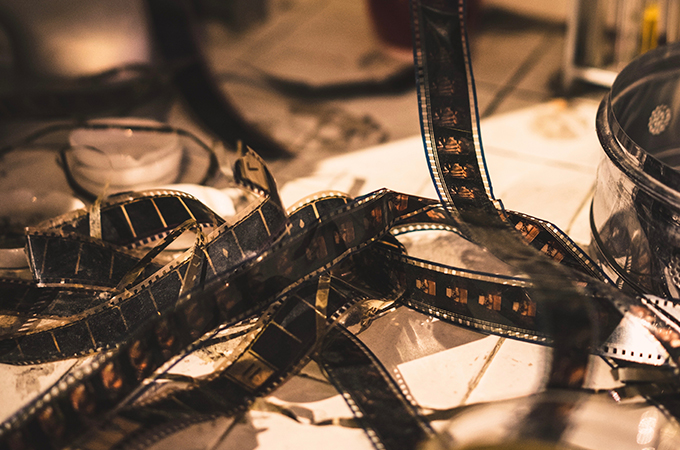Last week at the University of Redlands, a common thread in student life was supporting and analyzing diversity in film. The Middle Eastern Students Association brought in Sue Obeidi, director of the Hollywood Bureau for the Muslim Public Affairs Council, to speak on Muslim representation in Hollywood, and Fairmont Hall, the social justice dorm, held a screening of the 2016 award-winning film Hidden Figures.
Changing the narrative of Muslim characters
Obeidi, whose appearance was made possible by a gift from Rashid Ghazi ’89, spoke to a group of students and community members in the Casa Loma room September 26. She shared how her back story impacted the work she’s doing now, in which she strives to bring accurate depictions of Muslims in America by working with networks such as Walt Disney Studios, Disney/ABC Television, Amazon, Hulu, and more.
Obeidi immigrated to America from the Middle East at a young age. She recalls times in her childhood when she felt pressured to live the ideal American life as it was portrayed on The Brady Bunch. Growing up, she rarely saw Muslims on television, and when they were it was either as submissive females or subversive terrorists—nothing like the life she was living. The way Obeidi saw it, Muslims were “vital contributors” to American society, so why weren’t they being portrayed as such?
To quote Obeidi, Muslim culture is “working our way out of decades of stereotypes.” Five years ago, Obeidi said, no one in the Muslim community could have named five recurring Muslim characters on TV shows. Today, Obeidi sees an increased desire for accurate Muslim portrayals; she believes interest has been growing since President Donald Trump announced his presidential candidacy in 2015. Progress since then has been small but noticeable, and more prominent on the small screen than the big one.
Obeidi’s goal has centered around “consulting, connecting, contributing, and creating” in regards to Muslim representation, and she shows no sign of slowing down anytime soon. She hopes her work can impact the Muslim community in the same way Will & Grace aided the fight for marriage equality.
Discovering hidden figures
Diversity in film was a talking point in another location on campus this week, too. Students in Fairmont, the social justice residence hall (other residence hall themes at Redlands include music, the environment, global perspectives, and the Johnston Center program), took time on September 24 to watch the Oscar-nominated film Hidden Figures.
A discussion followed surrounding the predominantly white male-centered history dominating textbooks and the steps this generation can take to make sure every contributor to history is included. “It’s not only our job to make sure future minorities are represented in the history books, but uncover the story of past minorities, too,” one student stated. Others agreed it is important to learn about the minorities that have been essentially “glossed over” by history and to find ways to share these stories.
The conversations in Fairmont will continue. On Tuesday, October 8, the hall will be watching the Netflix revival of Queer Eye and discussing LGBTQIA+ representation.
Learn more about student organizations and residence life and housing at the University of Redlands.






